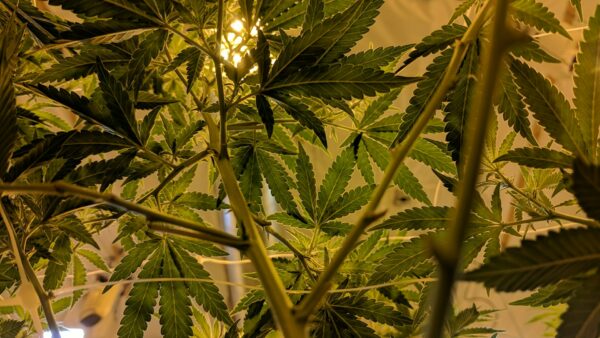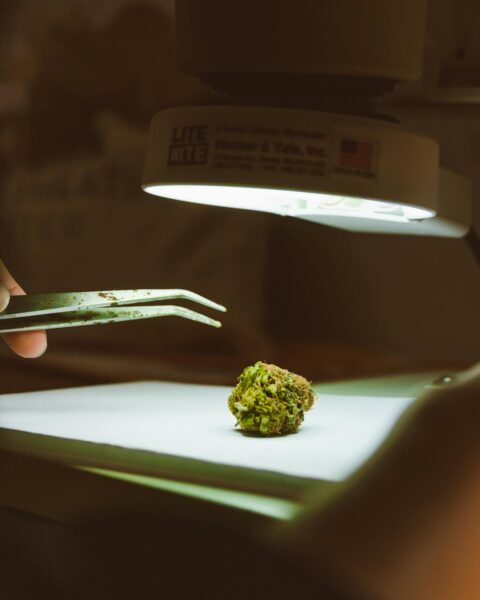Have a question? +336 70 73 89 02
🔞 Not for sale to under 18s
🎃 -40% with code HALLOWEED (on EVERYTHING except vaporizers and gummies) 🎃
Have a question? +336 70 73 89 02

THC acetate ester (THC-O or THCOA) is a synthetic cannabinoid that has been around for decades. It was much in the news in the 70s for its "spiritual and psychedelic" potential. After this spotlight, it was banned in many countries.
But in recent years, with the relaxation of various laws on hemp, cannabis and derivatives in Europe and around the world, THC-o is back in the news.
What is this cannabinoid, and how reputable is it? Stay put, we'll answer you right away!
Unlike many recently discovered CBD and THC derivatives, THCO has been around for a long time. It has a rich and fascinating history that continues to fuel many fantasies.
The first mentions of THCO appear directly after the studies carried out on cannabinoids in the early 20th century. These led to the discovery of THC and a large number of minor cannabinoids, as well as the synthesis of new forms.
Following the Second World War, THC-O was used by the US military for classified research. The aim of this research was to assess the impact and risks of chemical warfare, in order to prepare an arsenal of defense against it.
Alongside LSD, benzodiazepines and many other more or less offensive products, cannabinoid derivatives, and THCO in particular, have been tested for their potential as non-lethal incapacitating agents. These tests measured their ability to produce ataxia, a reduction in voluntary coordination.
In other words, the U.S. military evaluated THCO's paralyzing power. This study ended in 1975, without the results being published.
At the same time, David Gold, a chemist about whom little is known today, published a study on THCO in 1975. In it, the chemist describes the effects of the molecule, writing:
"The effect of acetate is more spiritual and psychedelic than that of the ordinary product. The most unique property of this material is that there is a delay of about thirty minutes before its effects are felt."
Although completely forgotten today, this text founded THC-O's reputation. Over the years, it was synthesized and marketed more or less legally in several countries around the world, and immediately banned because of its "psychedelic" properties.

THC-O's past experiences have left their mark. Even today, various websites claim it to be a "cannabinoid with strong incapacitating properties", or "the most psychedelic of all cannabinoids".
But with renewed attention being paid to minor cannabinoids and derivatives, THC-O has of course come under scrutiny from researchers, and the results are not living up to its reputation.
In 2023, a group of researchers from the University of Michigan attempted to clarify the question of the compound's psychedelic properties, using the famous MEQ (Mystical Experience Questionnaire). And the results of the compilation of the data collected are unequivocal: 79% of participants did not find THC-O to be particularly psychedelic. [1]
Although THC-O, like delta 9-thc and many others, was used during the American tests we've been talking about, it doesn't appear to be particularly incapacitating. In fact, cannabinoids in general can indeed produce a change in coordination, but not a decrease.
On the contrary, a number of more or less anecdotal studies[2] have demonstrated that "Sativex"[3] delays the onset of ataxia symptoms: "THC, like CBD, could be of real use in the treatment of disorders of voluntary movement coordination without muscle weakness".
With such a sulphurous reputation, THCO is logically illegal in France and most other European countries.
It was also illegal in the United States until 2018, when the Farm Bill decriminalized cannabinoids. Today, it is available in some states, but remains regulated or even banned in most.
Because of its highly regulated legal status, few people have tried THC-O, and we're obviously not one of them.
What we can say, however, is that while the acetylated version of THC doesn't seem to have any real psychedelic effects, it does seem to have definite psychoactive effects.
As you know, there are several cannabinoids in acetylated form, including HHCPO and THCPO, which are reputed to be more potent than their base form.
This rule seems to hold true for THC-O. In his 1977 book "Marijuana Potency", chemist Michael Starks talks of an effect 300% greater than THC. It would therefore be 3 times stronger than THC.
Acetylation undoubtedly increases this cannabinoid's potency tenfold, but are its effects exactly the same? Unfortunately, given our current state of knowledge, we can't provide a definitive answer to this question.
THC-o is definitely not a cannabinoid like the others, with a rich and fascinating history that continues to fuel its mythology decades later.
Nevertheless, recent research, such as that carried out on the psychedelic aspect of the plant, is gradually helping us to better understand cannabinoids, and thus to deconstruct the myths in which they are easily trapped.
Perhaps we'll soon be able to describe more surely the effect of cannabinoids on endocannabinoid receptors and on our bodies, but that's still some time away.
In the meantime, keep up to date with the latest news and developments in the world of CBD on our blog!